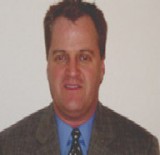For many individuals contemplating treatment for addiction, ninety or more days of residential treatment can be a daunting thought; even difficult for some to consider beyond the once-mainstay “30 day” inpatient treatment program. While many programs still use this “30 day” model, this duration was not based on research or science. It was simply the time period that insurance carriers agreed to provide coverage in the 1940’s and 1950’s, and so was adapted as the model for treatment.
Fast-forward nearly seventy years. The wisdom found in experience, combined with large outcome studies, have clearly shown that patients completing at least 90 days of residential treatment have a significantly reduced relapse rate compared with those who stay for shorter time periods. The National Institute of Drug Abuse (NIDA) now considers 90 days of treatment as the “gold standard”. With longer treatment, patients have more time to fully participate in a meaningful level of treatment. They are able to begin applying and “practicing” real-world skills important for their recovery in the relative safety of a residential program.
Detoxification from alcohol and other drugs, especially in the face of other physical and psychological issues, may be prolonged and may take several days up to several weeks to complete. Within that timeframe, a patient may just begin engaging in the treatment process towards recovery, which is continued and reinforced during the longer stay in residential treatment.
The length of detoxification can vary greatly due to multiple factors that must be accounted for at the start. An uncomplicated detoxification from alcohol in a relatively healthy patient may be as short as 48 hours. Conversely, patients with a history of withdrawal seizure from alcohol, or dependence to benzodiazapines (i.e. Valium, Xanax, or Ativan) usually require a longer “controlled” taper off of these drugs with medication that will prolong detoxification. The Betty Ford Center employs state-of-the art detoxification protocols that affect the duration of detoxification based on multiple factors in a patient’s history.
At the onset of treatment, a multitude of factors can make it more difficult for a patient to engage in treatment quickly, and increase the need to extend treatment for up to 90 days or more. These may include a prolonged detoxification as discussed, or complications that may develop during the Detox period (such as high blood pressure or high blood glucose levels, for example) that require closer, longer monitoring. Of course, a patient may be lacking motivation to begin treatment immediately, or may be in frank denial of their disease that would slow engaging into the treatment process.
Addiction to alcohol or drugs is also rarely an isolated event. Many serious problems coexist, including multiple drug addictions, legal and criminal problems, mental and physical health disorders, professional licensure issues or a family home-life that is not conducive to new recovery. Research again has shown that the return to drinking or drug use is considerably lower after 90 days of treatment even when these complicating problems are present. At the Betty Ford Center, for example, alcoholic/ addicted physicians who undergo a 90 day treatment program enjoy an impressive 78% long-term sobriety rate, with five to seven years of continued monitoring.
The traditional 30-day treatment program may certainly be appropriate for many patients. However, a longer length of stay allows a patient to focus on recovery, while learning new tools to maintain long-term sobriety.
Addicted to Narcotics?
Contact me now at sdavis1@dc.rr.com to discuss Suboxone treatment- safe, effective, comfortable wean from your opiate dependence.
Dr. Davis on CBS 2 News- Archives
Tuesday, November 3, 2009
Subscribe to:
Post Comments (Atom)
www.whitehousedrugpolicy.gov: Latest Resources
Addiction/ Recovery Resources
Dr. Davis podcast interview from Psychjourney.com
New York Times Book Review : "An eye-opening look into the hidden world of America's drug problem."
The Midwest Book Review : "An engrossing, solid narrative."
Publishers Weekly: "...Captivating and gripping".
Writer's Digest: "After the first two chapters, I couldn't put it down".
The Midwest Book Review : "An engrossing, solid narrative."
Publishers Weekly: "...Captivating and gripping".
Writer's Digest: "After the first two chapters, I couldn't put it down".



No comments:
Post a Comment